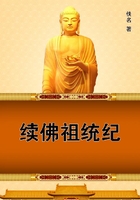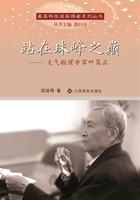The will is conceived as a faculty of determining oneself to action in accordance with the conception of certain laws. And such a faculty can be found only in rational beings. Now that which serves the will as the objective ground of its self-determination is the end, and, if this is assigned by reason alone, it must hold for all rational beings. On the other hand, that which merely contains the ground of possibility of the action of which the effect is the end, this is called the means. The subjective ground of the desire is the spring, the objective ground of the volition is the motive; hence the distinction between subjective ends which rest on springs, and objective ends which depend on motives valid for every rational being.
Practical principles are formal when they abstract from all subjective ends; they are material when they assume these, and therefore particular springs of action. The ends which a rational being proposes to himself at pleasure as effects of his actions (material ends) are all only relative, for it is only their relation to the particular desires of the subject that gives them their worth, which therefore cannot furnish principles universal and necessary for all rational beings and for every volition, that is to say practical laws. Hence all these relative ends can give rise only to hypothetical imperatives.
Supposing, however, that there were something whose existence has in itself an absolute worth, something which, being an end in itself, could be a source of definite laws; then in this and this alone would lie the source of a possible categorical imperative, i.e., a practical law.
Now I say: man and generally any rational being exists as an end in himself, not merely as a means to be arbitrarily used by this or that will, but in all his actions, whether they concern himself or other rational beings, must be always regarded at the same time as an end. All objects of the inclinations have only a conditional worth, for if the inclinations and the wants founded on them did not exist, then their object would be without value. But the inclinations, themselves being sources of want, are so far from having an absolute worth for which they should be desired that on the contrary it must be the universal wish of every rational being to be wholly free from them. Thus the worth of any object which is to be acquired by our action is always conditional. Beings whose existence depends not on our will but on nature's, have nevertheless, if they are irrational beings, only a relative value as means, and are therefore called things; rational beings, on the contrary, are called persons, because their very nature points them out as ends in themselves, that is as something which must not be used merely as means, and so far therefore restricts freedom of action (and is an object of respect). These, therefore, are not merely subjective ends whose existence has a worth for us as an effect of our action, but objective ends, that is, things whose existence is an end in itself; an end moreover for which no other can be substituted, which they should subserve merely as means, for otherwise nothing whatever would possess absolute worth; but if all worth were conditioned and therefore contingent, then there would be no supreme practical principle of reason whatever.
If then there is a supreme practical principle or, in respect of the human will, a categorical imperative, it must be one which, being drawn from the conception of that which is necessarily an end for everyone because it is an end in itself, constitutes an objective principle of will, and can therefore serve as a universal practical law. The foundation of this principle is: rational nature exists as an end in itself. Man necessarily conceives his own existence as being so; so far then this is a subjective principle of human actions. But every other rational being regards its existence similarly, just on the same rational principle that holds for me:* so that it is at the same time an objective principle, from which as a supreme practical law all laws of the will must be capable of being deduced. Accordingly the practical imperative will be as follows: So act as to treat humanity, whether in thine own person or in that of any other, in every case as an end withal, never as means only. We will now inquire whether this can be practically carried out.
*This proposition is here stated as a postulate. The ground of it will be found in the concluding section.
To abide by the previous examples:
Firstly, under the head of necessary duty to oneself: He who contemplates suicide should ask himself whether his action can be consistent with the idea of humanity as an end in itself. If he destroys himself in order to escape from painful circumstances, he uses a person merely as a mean to maintain a tolerable condition up to the end of life. But a man is not a thing, that is to say, something which can be used merely as means, but must in all his actions be always considered as an end in himself. I cannot, therefore, dispose in any way of a man in my own person so as to mutilate him, to damage or kill him. (It belongs to ethics proper to define this principle more precisely, so as to avoid all misunderstanding, e. g., as to the amputation of the limbs in order to preserve myself, as to exposing my life to danger with a view to preserve it, etc. This question is therefore omitted here.)Secondly, as regards necessary duties, or those of strict obligation, towards others: He who is thinking of making a lying promise to others will see at once that he would be using another man merely as a mean, without the latter containing at the same time the end in himself. For he whom I propose by such a promise to use for my own purposes cannot possibly assent to my mode of acting towards him and, therefore, cannot himself contain the end of this action.















